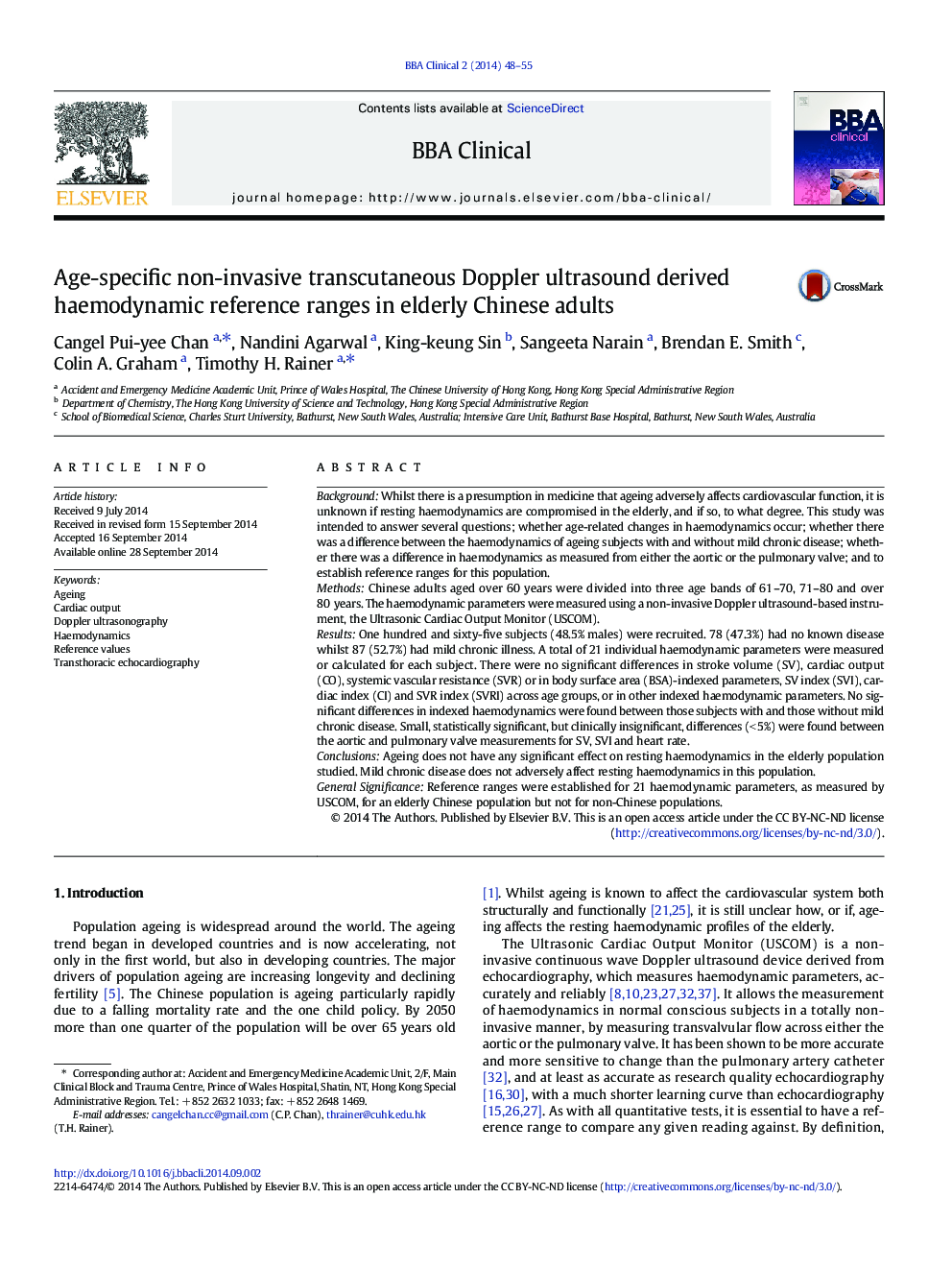| Article ID | Journal | Published Year | Pages | File Type |
|---|---|---|---|---|
| 2773217 | BBA Clinical | 2014 | 8 Pages |
•Ageing has no significant effect on resting haemodynamics in the population studied.•Mild chronic disease does not adversely affect resting haemodynamics in this population.•Reference ranges were established for 21 haemodynamic parameters in Chinese elderly.
BackgroundWhilst there is a presumption in medicine that ageing adversely affects cardiovascular function, it is unknown if resting haemodynamics are compromised in the elderly, and if so, to what degree. This study was intended to answer several questions; whether age-related changes in haemodynamics occur; whether there was a difference between the haemodynamics of ageing subjects with and without mild chronic disease; whether there was a difference in haemodynamics as measured from either the aortic or the pulmonary valve; and to establish reference ranges for this population.MethodsChinese adults aged over 60 years were divided into three age bands of 61–70, 71–80 and over 80 years. The haemodynamic parameters were measured using a non-invasive Doppler ultrasound-based instrument, the Ultrasonic Cardiac Output Monitor (USCOM).ResultsOne hundred and sixty-five subjects (48.5% males) were recruited. 78 (47.3%) had no known disease whilst 87 (52.7%) had mild chronic illness. A total of 21 individual haemodynamic parameters were measured or calculated for each subject. There were no significant differences in stroke volume (SV), cardiac output (CO), systemic vascular resistance (SVR) or in body surface area (BSA)-indexed parameters, SV index (SVI), cardiac index (CI) and SVR index (SVRI) across age groups, or in other indexed haemodynamic parameters. No significant differences in indexed haemodynamics were found between those subjects with and those without mild chronic disease. Small, statistically significant, but clinically insignificant, differences (< 5%) were found between the aortic and pulmonary valve measurements for SV, SVI and heart rate.ConclusionsAgeing does not have any significant effect on resting haemodynamics in the elderly population studied. Mild chronic disease does not adversely affect resting haemodynamics in this population.General SignificanceReference ranges were established for 21 haemodynamic parameters, as measured by USCOM, for an elderly Chinese population but not for non-Chinese populations.
